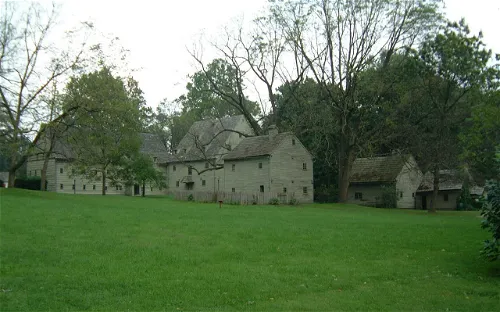Historic Ephrata Cloister and its collection
The Ephrata Cloister, located in Pennsylvania, North America, was established in 1732 by German immigrant Johann Conrad Beissel. This semi-monastic community was part of the pietistic-baptist movement of the Schwarzenau Brethren, also known as Tunker or Dunkers. Today, the cloister serves as a public museum, offering visitors a glimpse into the unique history and culture of this religious community.
Unique Practices of the Ephrata Cloister Community
The Ephrata Cloister community was distinctive for its practices, including the celebration of the Sabbath on Saturdays and an openness to celibate ideas. The community established the cloister on the banks of the Cocalico creek in 1732, marking the beginning of a unique religious community that would leave a lasting impact on the region.
Ephrata Cloister as a National Historic Landmark
The Ephrata Cloister holds significant historical value, recognized by its status as a National Historic Landmark since December 1967. It is also listed in the National Register of Historic Places as a Historic District. These designations underscore the importance of the Ephrata Cloister in American history and its value as a cultural heritage site.
History & Anthropology Religion Historic house Religious building

